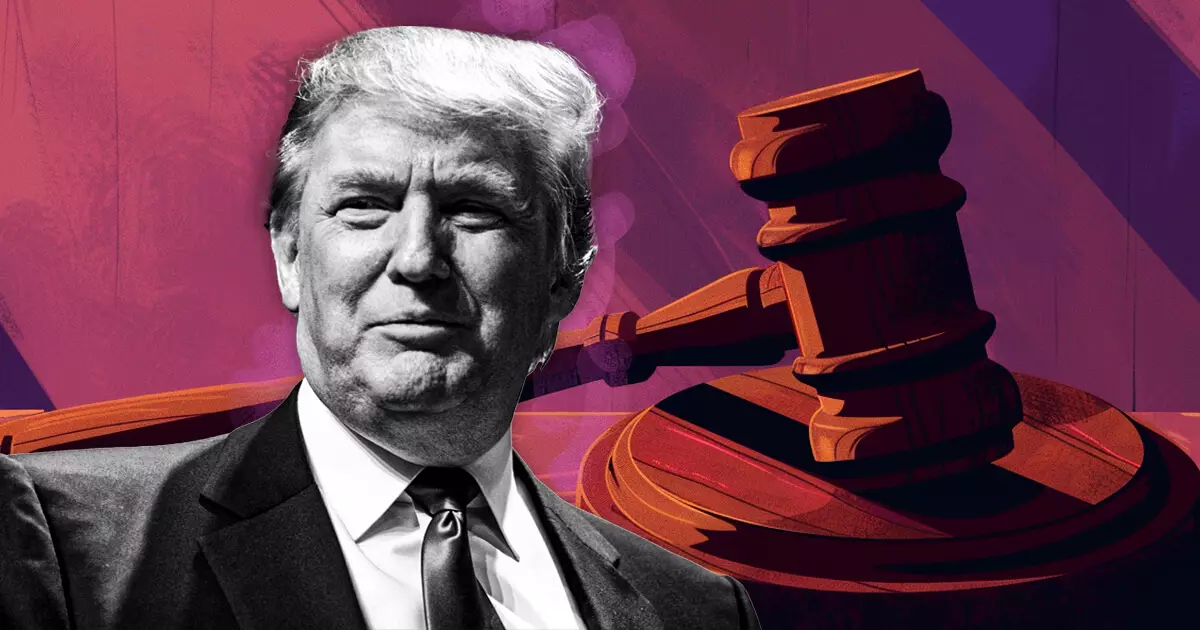The rapidly evolving landscape of cryptocurrency is often fraught with complexities, especially when aligned with political figures. Former President Donald Trump’s decentralized finance (DeFi) initiative, World Liberty Financial, is poised to face the same stringent regulations that have impacted the broader crypto market in the United States. The insights shared by SEC Commissioner Mark Uyeda in a recent interview shed light on the challenges that lie ahead for Trump’s ambitious project while also highlighting an ongoing pattern of regulatory challenges that affect the industry at large.
The complexities of cryptocurrency regulation in the U.S. are compounded by the lack of clarity, as noted by Commissioner Uyeda. He emphasized that the SEC operates as a disclosure regulator, meaning their primary responsibility is to ensure that companies provide necessary information to investors rather than assess the inherent risks or benefits of specific projects. This distinction is crucial for projects like World Liberty Financial, as it underscores the commission’s focus on transparency over merit evaluation.
This regulatory approach poses significant hurdles for Trump’s project; navigating the rigors of compliance while trying to attract investment is no small feat. The SEC’s insistence on stringent disclosure requirements means that World Liberty Financial will have to maintain transparency on its operations, financials, and any potential risks. Uyeda’s forward-thinking advice to Trump’s legal team highlights not just the challenges but also the necessity for skilled legal counsel to maneuver through this complex terrain.
The involvement of Trump in the crypto market inevitably introduces a layer of political intrigue. With the rising speculation about the Democratic Party possibly pushing for tighter regulations on this venture, the intersection of politics and finance becomes even more pronounced. Such partisan divides could inadvertently influence the success or failure of World Liberty, as regulatory actions may be shaped by political winds rather than the intrinsic merits of the project itself.
The actions of the SEC typically reflect a broader sentiment within the political landscape, and as regulatory scrutiny increases, the feasibility of World Liberty Financial achieving its ambitious goals could become significantly compromised. If regulatory bodies perceive the initiative as politically charged, they may take a more cautious or even adversarial stance toward it.
The prevailing climate of uncertainty surrounding cryptocurrency regulation has left many in the industry feeling frustrated. Uyeda and fellow SEC Commissioner Hester Peirce have critiqued the commission’s current strategies, voicing concerns that the ambiguous nature of regulations could push innovation to more favorable jurisdictions overseas. The grave implications of a “toxic” regulatory environment can stifle not just new ventures like Trump’s but could also inhibit the United States’ position in the global crypto landscape.
Calls for clearer, more coherent regulations are echoing through the halls of Congress, where some lawmakers propose creating a joint advisory body aimed at establishing a transparent framework for cryptocurrency operations in the U.S. The prospect of regulatory reform could provide much-needed reassurance for new entrants to the market, including innovative projects like World Liberty.
Despite the high-profile nature of Trump’s involvement in World Liberty Financial, investor skepticism prevails. The overarching concern focuses on whether the project can thrive amidst a landscape riddled with regulatory hurdles. Trump’s assertion that the initiative will position the U.S. as a leader in the global crypto market stands in stark contrast to the concerns voiced by market analysts and investors who fear that regulatory challenges may hinder its growth potential.
Success in the current environment is highly contingent on the ability of regulatory bodies to establish more reliable frameworks. Without such clarity, the foundational premise of World Liberty could be fundamentally weakened, widening the gulf between vision and reality.
Trump’s World Liberty Financial is on the brink of navigating a labyrinth of regulatory challenges that could define its success. The insights from SEC’s Commissioner Uyeda have illuminated the clear-cut divide between regulatory responsibilities and project viability. As the political landscape evolves and scrutiny intensifies, the ability to adapt and ensure transparent operations will be pivotal. For now, the future of this project remains uncertain, tethered to the hope for a more favorable regulatory environment that fosters innovation rather than suppresses it.


Leave a Reply